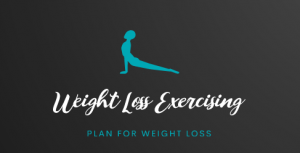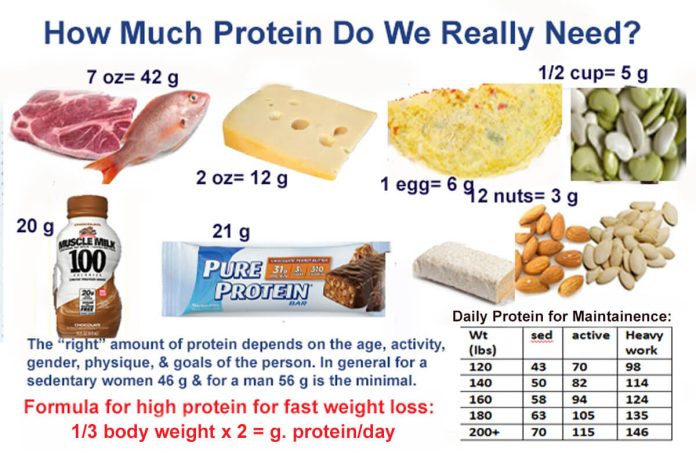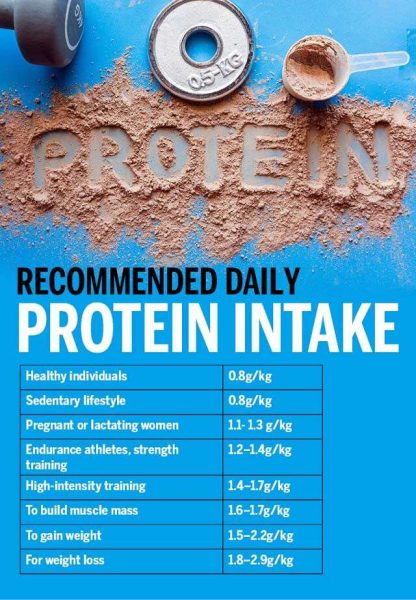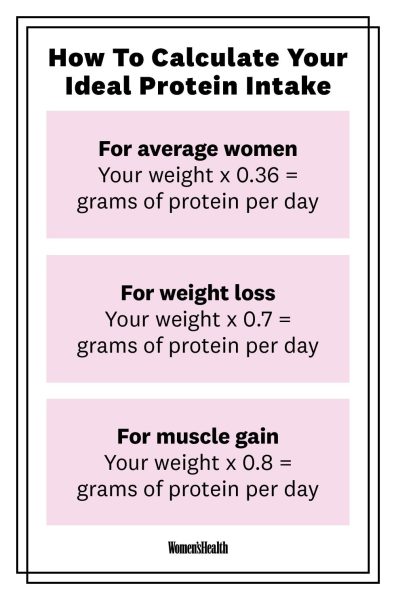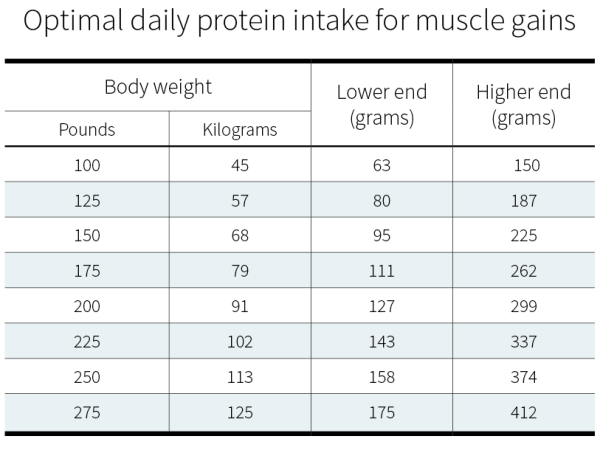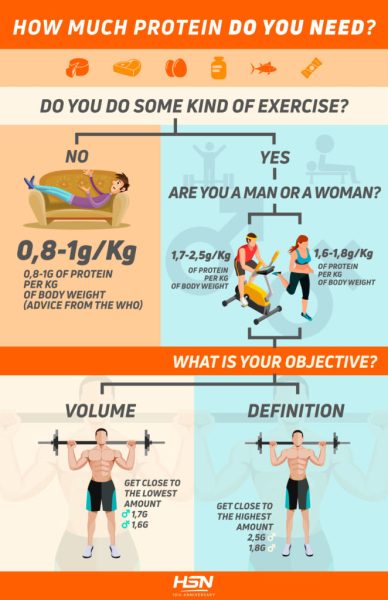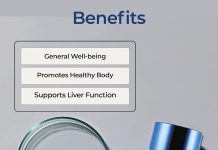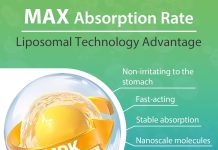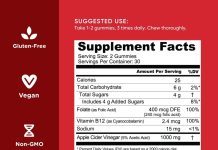Looking to shed some extra pounds? You may have heard that protein is essential for weight loss. But just how much protein should you be consuming daily? This article aims to answer that very question, providing you with valuable information on the recommended protein intake for weight loss. So, if you’re ready to kickstart your journey towards a healthier, trimmer body, let’s dive into the world of protein and discover the perfect amount to fuel your weight loss goals.
Review contents
Importance of Protein for Weight Loss
The role of protein in weight loss
When it comes to weight loss, protein plays a crucial role in supporting your journey. Protein is often referred to as the “building blocks” of the body, as it is responsible for repairing and building tissues, including muscle. Including adequate amounts of protein in your diet can help promote muscle growth and repair, which is particularly important for weight loss.
Protein’s impact on metabolism
One of the reasons why protein is so important for weight loss is its impact on metabolism. Compared to carbohydrates and fats, protein has a higher thermic effect on the body, meaning that it requires more energy to digest and metabolize. This increased energy expenditure contributes to a slightly higher metabolic rate when consuming a protein-rich diet. By increasing your metabolic rate, protein can help you burn more calories throughout the day, even at rest.
Protein’s effect on appetite and satiety
Another way that protein can support weight loss is through its effect on appetite and satiety. High-protein foods have been found to be more filling and satisfying compared to high-carbohydrate or high-fat foods. This can help reduce hunger cravings and prevent overeating or snacking on unhealthy foods. By increasing your intake of protein, you can feel more satisfied after meals and reduce the likelihood of reaching for unhealthy snacks.
Determining Protein Requirements
Factors to consider
The amount of protein needed for weight loss can vary depending on various factors. Some important factors to consider when determining your protein requirements include:
- Body weight and composition: Individuals with more muscle mass may require a higher protein intake to support muscle repair and growth.
- Activity level: Those who are more physically active or engage in regular exercise may need more protein to support their recovery and muscle-building needs.
- Goals: The intensity and duration of your weight loss goals may impact your protein needs. If you are aiming for significant weight loss, a higher protein intake may be necessary to preserve muscle mass.
Calculating protein needs
Calculating your protein needs for weight loss can be done using a simple equation. Firstly, estimate your daily calorie needs for weight loss. This can be done by multiplying your current body weight in pounds by a factor of 10-12, depending on your activity level and goals. Once you have your daily calorie needs, multiply that number by 0.25-0.35 to determine your protein needs in grams. This range is generally recommended for individuals aiming for weight loss, as it provides enough protein to support muscle repair and growth without excessive calorie intake.
Recommended Daily Protein Intake for Weight Loss
General guidelines
For individuals aiming for weight loss, a general guideline for protein intake is to consume 0.8-1 gram of protein per kilogram of body weight. This guideline is based on the minimum amount of protein needed to prevent muscle loss during weight loss. However, it’s important to note that individual protein needs can vary based on factors such as age, sex, activity level, and muscle mass.
Specific recommendations for different groups
While the general guideline of 0.8-1 gram per kilogram of body weight is a good starting point, specific recommendations may apply to certain groups. For example, athletes or individuals engaging in intense exercise may benefit from a higher protein intake of 1.2-2 grams per kilogram of body weight to support muscle recovery and growth. Older adults may also require a slightly higher protein intake to counteract age-related muscle loss.
Choosing High-Quality Protein Sources
Animal-based proteins
Animal-based protein sources are known for their high biological value, meaning they contain all the essential amino acids needed by the body. Lean meats such as chicken, turkey, and fish are excellent sources of high-quality protein. Eggs and dairy products like Greek yogurt and cottage cheese are also rich in protein. Incorporating a variety of animal-based proteins into your diet can help ensure that you are getting all the essential amino acids your body needs.
Plant-based proteins
Plant-based proteins can also provide a valuable source of protein for weight loss. Foods such as legumes, tofu, tempeh, and edamame are excellent sources of plant-based protein. Whole grains, nuts, and seeds also contain protein and can be included in a well-rounded diet. However, it’s important to note that plant-based proteins are often lacking in one or more essential amino acids, so it’s essential to consume a variety of plant-based protein sources to ensure you are meeting your amino acid needs.
Combining different protein sources
To optimize your protein intake, consider combining different protein sources in your meals and snacks. By combining plant-based proteins with animal-based proteins, you can ensure a complete amino acid profile. For example, adding beans to a chicken stir-fry or pairing Greek yogurt with nuts and seeds can provide a balanced mix of proteins.
Timing and Distribution of Protein Intake
Optimal timing for protein consumption
While the total protein intake throughout the day is more important, the timing of protein consumption can also have an impact on weight loss. Consuming protein-rich meals and snacks throughout the day can help maintain a steady supply of amino acids to support muscle repair and growth. Additionally, consuming protein within 30 minutes to an hour after a workout can help enhance muscle recovery and stimulate protein synthesis.
Importance of evenly distributed protein intake
It’s also crucial to distribute your protein intake evenly across meals and snacks to maximize its benefits for weight loss. By evenly spacing out your protein intake, you can continually support muscle repair and growth throughout the day. Aim to include a source of protein in every meal and snack, such as lean meats, dairy products, legumes, or protein-rich plant-based alternatives.
Potential Risks and Considerations
Impact on kidney function
There is a common misconception that high protein intake can harm kidney function. However, this belief is unsupported by scientific evidence. Unless you have pre-existing kidney disease, a high protein intake is generally safe for most healthy individuals. If you have concerns about your kidney function, it’s always best to consult with a healthcare professional.
Allergies and intolerances
When incorporating protein sources into your diet, it’s essential to consider any allergies or intolerances you may have. Many protein-rich foods, such as shellfish, dairy, or soy, can trigger allergic reactions. If you are allergic or intolerant to particular protein sources, it’s important to find suitable alternatives to ensure you are meeting your protein needs.
The role of protein supplements
In some cases, protein supplements may be used to help meet protein requirements for weight loss. Protein powders, bars, or shakes can be convenient options, especially for individuals with limited time or those who struggle to consume enough protein through whole foods alone. However, it’s crucial to remember that supplements should not replace a well-rounded diet and should be used in conjunction with a healthy eating plan.
Tips for Incorporating Protein into Weight Loss Diet
Planning protein-rich meals
To ensure that you are meeting your protein needs for weight loss, it’s important to plan protein-rich meals. Start by including a source of protein in each meal, such as lean meats, fish, tofu, or legumes. Pair protein-rich foods with vegetables, whole grains, and healthy fats to create a well-rounded and satisfying meal.
Snack and meal ideas
Here are some snack and meal ideas that are high in protein and suitable for weight loss:
- Greek yogurt with berries and almonds
- Grilled chicken breast with roasted vegetables
- Scrambled eggs with spinach and whole-grain toast
- Black bean salad with avocado and quinoa
- Tofu stir-fry with mixed vegetables and brown rice
- Cottage cheese with sliced cucumbers and cherry tomatoes
By incorporating these protein-rich options into your diet, you can enjoy delicious meals and snacks while supporting your weight loss goals.
Monitoring Progress and Adjusting Protein Intake
Tracking protein intake
To ensure that you are meeting your protein needs for weight loss, it can be helpful to track your protein intake. Various apps and websites allow you to track your food intake and calculate the macronutrient content of your meals. By tracking your protein intake, you can ensure that you are consistently meeting your protein goals and make adjustments if needed.
Modifying protein intake based on results
As you progress on your weight loss journey, you may find it necessary to adjust your protein intake. Factors such as changes in exercise intensity, body composition, or overall weight loss can influence your protein needs. If you experience significant changes in these areas, it may be helpful to consult with a registered dietitian or healthcare professional to ensure you are making the necessary adjustments to support your weight loss goals.
Conclusion
In conclusion, protein plays a critical role in weight loss by supporting muscle growth, increasing metabolism, and promoting feelings of fullness. By determining your protein requirements, choosing high-quality protein sources, timing and distributing your protein intake appropriately, and monitoring your progress, you can effectively incorporate protein into your weight loss diet. Remember to individualize your approach and make adjustments as needed to support your unique weight loss goals. With the right strategies, protein can be a powerful tool in your weight loss journey.
